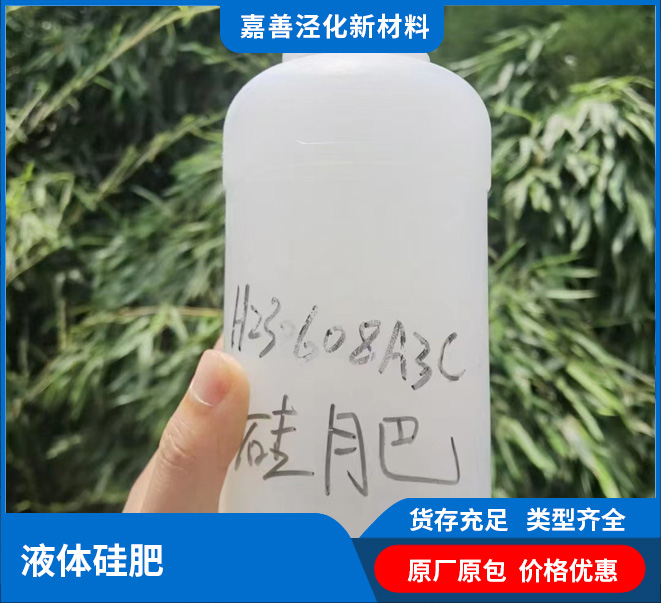 Position:Home > Products
Position:Home > ProductsSilicon fertilizer with low pH value

|
Serial NO. |
Conventional Type |
Frost Resistant Type |
|
Frost Resistant |
Not frost resistant, needs to be used at 5 ℃ or above |
-20 ℃, can be used normally after thawing |
|
Quality Guarantee Period |
1 year |
1 year |
|
pH Value |
6.5-8.5 |
6.5-8.5 |
|
Viscosity |
≤50cp |
≤50cp |
|
Silicon Content |
15±0.5% |
15±0.5% |
|
Density |
1.18-1 20 |
1.18-1 20 |
|
Storage Conditions |
Sunscreen, rainproof, moisture-proof |
Sunscreen, rainproof, moisture-proof |
|
Package |
1.2-1.4 tons/barrel (ton packaging) |
1.2-1.4 tons/barrel (ton packaging) |
The function of silicon fertilizer/silicon potassium fertilizer products:
1. Enhance resilience
Silicon potassium fertilizer can thicken plant cell walls, increase plant cold resistance, drought resistance, lodging resistance, etc;
Silicon potassium fertilizer can effectively maintain the balance of intracellular and extracellular osmotic pressure, helping crops better cope with adverse environments such as drought, cold, or diseases;
2. Improve soil structure
Silicon potassium fertilizer can adsorb harmful cations in soil, reduce the concentration of salt in soil, and thus alleviate the harm of salt to seeds and seedlings;
Silicon potassium fertilizer increases the activity of enzymes in plants, enhances their resistance, and effectively prevents the occurrence of diseases and pests;
Applying silicon and potassium fertilizers can flexibly adjust the pH of soil according to crop needs, increase soil salinity, promote organic fertilizer decomposition, and inhibit soil bacteria;
3. Effectively improve photosynthesis
It can make the epidermal cells of crops siliceous, straighten the stems and leaves of crops, reduce shading, and enhance leaf photosynthesis;
4. Promote root vitality
By supplementing potassium in the soil, sufficient nutrients are provided to the roots, thereby stimulating their vitality;
Potassium participates in the normal metabolic processes of root cells, promoting cell division and elongation, making the root system more robust and developed;
5. Enhance the disease and insect resistance of crops
After absorbing silicon elements, crops form siliconized cells in their bodies, thickening the cell walls on the surface of stems and leaves and increasing the stratum corneum, thereby improving their ability to resist pests and diseases, especially rice blast, rice blast, leaf spot, stem rot, and white leaf blight, as well as reducing the harm of piercing sucking mouth pests such as aphids, mites, red and white spiders, whiteflies, thrips, and rice planthoppers;
6. Other functions
Improving crop quality, such as increasing the sugar content of fruits, enhancing taste and nutritional value;
Promote the absorption of other nutrients by plants and improve the utilization efficiency of fertilizers.

 Scan it
Scan it